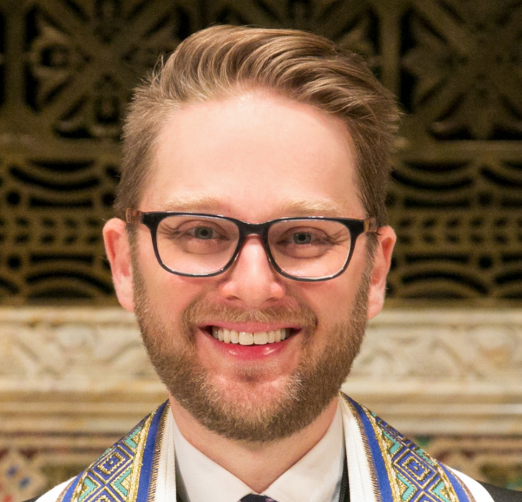I rarely leave my house without wearing headphones. Often I’m not even paying attention to what I’m listening to. The music or podcast piped into my ears helps to distract me from everything else – it creates a bubble of protection around me against the din of the city, both on the street and in the subway. It may help cover the assault of sound, but it doesn’t block out all the noise.
The world around us is constantly demanding our attention. Be it buskers or beggers, ads or announcements, we are pulled in a million directions at once at every moment. This has become such a noticeable trend that some have begun referring to our economy today as an attention-based economy.
Dr. Matthew Crawford, a researcher at the Institute for Advanced Cultural Studies at University of Virginia, published a book a few years back about this issue. In a Times article on the book, he wrote:
“What if we saw attention in the same way that we saw air or water, as a valuable resource
that we hold in common? Perhaps, if we could envision an “attentional commons,” then we could figure out how to protect it.”
Where we place our attention is central to the Jewish understanding of relating to God. There are two forms of “turning” in our portion – turning towards and turning away. One, shuv, is referring to the desired state: turning our attention to God. The other, panah, is the undesired state: to project our attention towards other gods. In an attention economy, this text takes on new meaning. Our ancient ancestors knew that what we turned to, that is, where we place our attention, predicted our future.
Moses relays the choices we all have: do we turn our attention to God, which will bring us life, or do we turn away, towards the other things which will lead to our destruction. It is this responsibility to control our attention that is the crux of the covenant between God and the Israelites, and therefore a guide to how we can encounter and be in relationship with God. And this choice has never been more present and clear than it is today.
Crawford diagnoses the problem of attention this way:
“Lately, our self-appointed disruptors have opened up a new frontier of capitalism, complete with its own frontier ethic: to boldly dig up and monetize every bit of private headspace by appropriating our collective attention. In the process, we’ve sacrificed silence — the condition of not being addressed. And just as clean air makes it possible to breathe, silence makes it possible to think.”
Silence is not just what makes it possible to think – it’s a key Jewish way to attend to God. In the Book of Kings, Elijah the prophet has a very close and personal encounter with God on Mt. Horeb. It is recorded as follows:
“And God passed by, and a great and strong wind rent the mountains, and broke the rocks into pieces; but the God was not in the wind; and after the wind an earthquake; but God was not in the earthquake; and after the earthquake a fire; but God was not in the fire; and after the fire a still small voice. And it was so, when Elijah heard it, that he wrapped his face in his mantle and went out, and stood in the entrance of the cave.” (1 Kings 19:11-14)
Elijah, in search of God, does not find God in all of the overtly distracting explosions of power through the elements. Instead, Elijah finds God in the silence after – in the respite from those attention-demanding phenomena. This message is potent. The silence was all that allowed him to hear the still small voice. Ancient Israelites like Elijah saw past the manifestations of power in the world to a singular source, rather than ascribing a different god to each manifestation like their neighbors. Put in other words, the Israelites found One God of All in silence, while their neighbors found a multitude of gods in noise of the world around them.
The Torah pleads with us to make room for just this kind of silence in our lives. Rather than returning to the silence where God dwells, our attention is constantly pulled outwards – towards the manifestations of power, the distractions, the shining totems built particularly to capture our attention.
The timely message of Deuteronomy. After explaining what is demanded of our attention, Moses tells us:
כִּי הַמִּצְוָה הַזֹּאת, אֲשֶׁר אָנֹכִי מְצַוְּךָ הַיּוֹם–לֹא-נִפְלֵאת הִוא מִמְּךָ, וְלֹא רְחֹקָה הִוא. כִּֽי־קָר֥וֹב אֵלֶ֛יךָ הַדָּבָ֖ר מְאֹ֑ד בְּפִ֥יךָ וּבִֽלְבָבְךָ֖ לַעֲשֹׂתֽוֹ׃
Surely, this Instruction which I enjoin upon you this day is not too baffling for you, nor is it beyond reach. For this thing is very close to you – in your mouth and in your heart- to do.
In the world described by Matthew Crawford, there is little hope for a respite from the entities that surround us vying for our attention. But, the Torah tells us, it is very simple – we need only seek out inner silence in order to listen inwardly.
Sometimes, when I put in my headphones to venture out into the city I put on some form of white noise. I usually do this when I’m already feeling overwhelmed; when emotion or anger is bubbling just under the surface; when my brain feels like it is already processing too much information.
This turns my attention inwards – to close my mouth, and listen to my heart. I momentarily blot out the distractions around me in order to seek that inner silence Elijah found on Mount Horeb, to allow the overwhelm, emotion, or backlog of thought to quietly express itself. Sometimes, even often, I sense the small, still voice that is ever-present just behind all of the other internal noise. In this experience I revive the covenant between the ancient Israelites and God; I renew my commitment to attending to the Jewish God, the God of silence. And these moments of inward attention bring me God’s greatest gift, shalom, a holistic peace.
Sometimes it feels quite alien to look to the Bible for contemporary spiritual wisdom, but in this instance, our ancestors shared a great truth for us in our age of the attention economy. To shuv, to turn inwards, to turn towards God, brings us peace, brings us wholeness, and allows us to choose a life of meaning, rather than a life of distraction.


